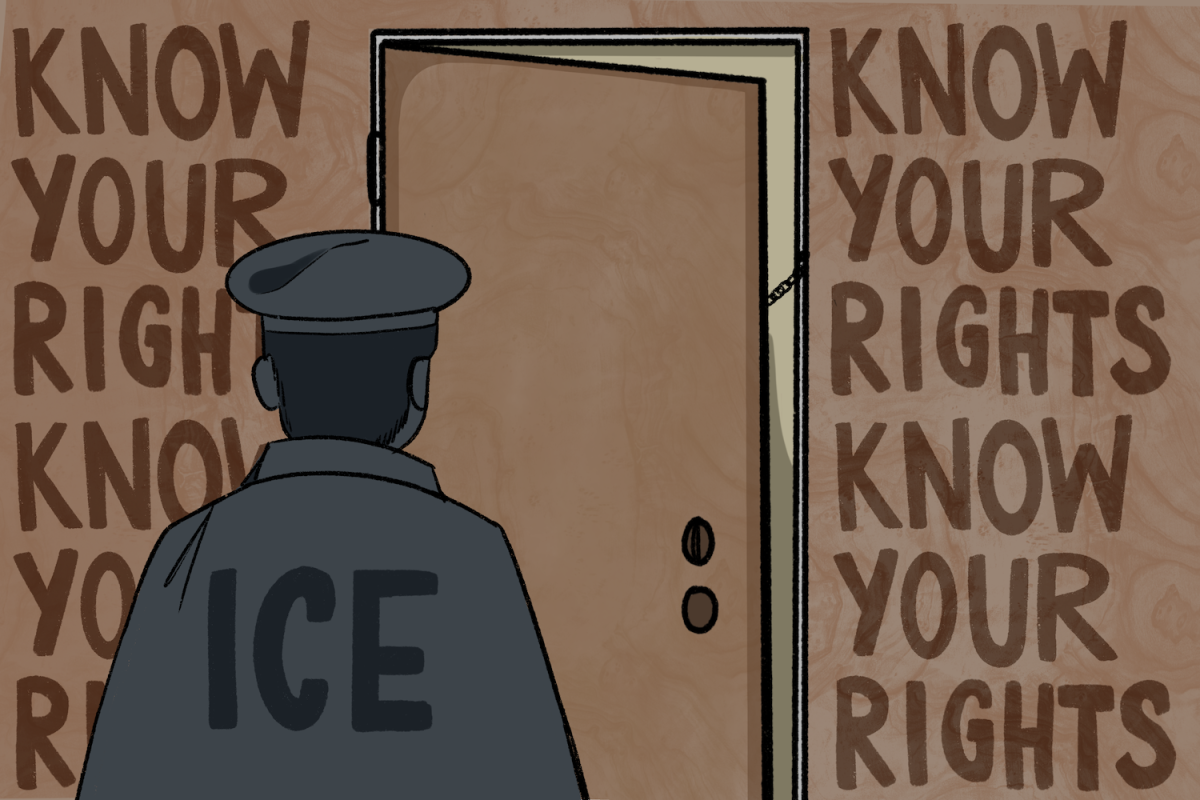Immigration and deportation were defining issues in President Donald Trump’s presidential campaign — now they are shaping his first three weeks in office. There has been a spike in raids and arrests against suspected undocumented immigrants, with Trump’s administration encouraging U.S. Immigration and Customs Enforcement raids in previously protected spaces, such as schools, daycare centers, places of worship and hospitals. New York City — the largest sanctuary city in the country, and home to over 600,000 undocumented immigrants — has become a target of the current administration efforts.
As this unprecedented and immoral mass deportation effort intensifies, it is more important than ever to know your rights if you find yourself confronted by ICE.
How NYU is handling ICE and immigration policy
In response to the administration’s crackdown on immigration, NYU has said that it will “comply with the law.” While NYU hosts more international students than any other U.S. institution, the university has not enacted any explicit protections or prepared students at risk of deportation with anything other than listening sessions, support groups and counseling services. As nice as the sentiment behind these measures seems, they offer no concrete support to students who are at risk of being deported.
NYU policy states that Campus Safety officers are only to allow law enforcement officials, including ICE, on campus if they present a valid search warrant or subpoena. The university has also stated it will not provide any personal information regarding a member of the community unless legally required to do so. NYU Langone Health has reportedly warned employees against protecting undocumented patients from ICE personnel, telling staff “not try to actively help a person avoid being found by ICE,” in a memo.
On-campus organizations such as the Immigrant Rights Clinic, which provides legal guidance, the Office of Global Services, which supports international students with visa concerns, as well as the Immigrant Defense Initiative, which offers free legal services for NYU students facing immigration proceedings, can all help vulnerable students.
What to do if ICE officers approach you
First and foremost, remain calm, you have the right to remain silent. Running or resisting may be used against you. You do not have to answer questions about your citizenship status — including where you were born, if you are a citizen or how you entered the country. Rules differ at international borders and airports and for individuals on certain nonimmigrant visas, including tourists.
You are not legally bound to consent to a search of yourself or your belongings. ICE agents need a warrant signed by a judge to search you — ask to see it. You are allowed to film agents in public spaces so long as the filming is not interfering with their operations.
What to do if detained or arrested
State that you wish to remain silent and request a lawyer immediately. If arrested by police, you have the right to ask for a government-appointed lawyer. If you are detained by ICE, however, you have the right to consult with a lawyer but the government is not obligated to appoint one to you. If you do not have a lawyer, you may ask for a list of free or low-cost attorneys.
Do not sign any documents, or make any decisions or statements without legal representation. If arrested by police, you have the right to make a local phone call — if you call a lawyer the police are not allowed to listen. If detained by ICE, you have the right to contact your consulate or have the officer alert them of your detention. Memorize your Alien Registration Number, if given one, and share it with trusted family members. This will help them locate you if necessary. Keep a copy of your immigration documents with a trusted person in case you are unable to access them.
If you are not a citizen, consult a lawyer about the effect of a criminal conviction or plea on your immigration status. An immigration agent may visit you in jail. Don’t discuss your immigration status, answer questions or sign anything before talking to a lawyer. If you do not understand the paperwork, tell the officer you need an interpreter.
What to do if your rights have been violated
Document everything — write down anything you remember, such as officers’ badge numbers, patrol car numbers and other identifying details, and get the contact information of any witnesses. If you are injured, photograph your injuries and file a written complaint with the agency’s internal affairs division or civilian complaint board. Often, you can file a complaint anonymously if you wish.
To find out more about how to file a complaint with ICE, click here.
Essential items to keep on you
It’s important to keep a copy of your passport or ID, as well as a digital copy on your phone. Keep the phone numbers of your family and emergency contacts, and memorize the most important contacts in case your phone is confiscated.
In this current political climate — which both emboldens ICE and intimidates immigrants and seeks to deport as many people as possible — we can expect the administration to challenge or try to change a number of long-standing immigration policies. Since Trump has been in office, he has already signed over 10 immigration orders to increase deportation numbers, challenged birthright citizenship, deployed the military to assist in deportation missions and signed into law the Laken Riley Act, which gives law enforcement more power to deport undocumented immigrants accused of non-violent crimes. It is important to remain aware of these legal changes, and what they mean in terms of risks and rights for those vulnerable to these raids.
For more detailed information on your immigration rights, go to the American Civil Liberties Union or the National Immigration Law Center.
WSN’s Opinion section strives to publish ideas worth discussing. The views presented in the Opinion section are solely the views of the writer.
Contact Mehr Kotval at [email protected].






















































































































































